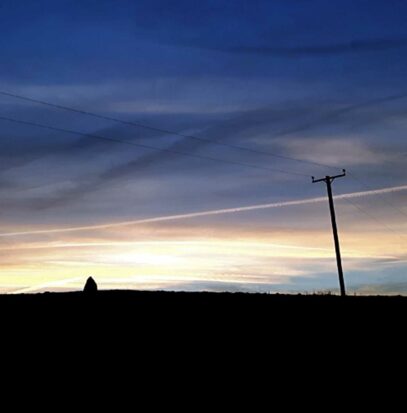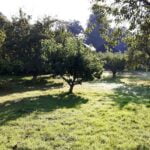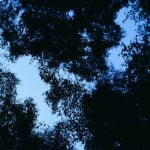
50 Singing beck below Black Hill (sleep safe)
Leave a reviewHigh on a Derbyshire moor below the summit of Black Hill, between Disley and Whaley Bridge, there’s an ancient trackway. It runs almost level across boggy ground with views over rough pastures and gritstone walls to a lone standing stone. After about half a mile the track descends sharply into a tree-lined dell. Nestled in amongst a wood, there’s a small farmhouse mostly hidden from view. It was, more than a lifetime ago, in 1898 the home of Carl Fuchs, a distinguished cellist, who played in the Halle Orchestra and the Brodsky quartet. At the point where the gorse bushes are, where the path narrows and sinks below the gritstone walls, and the deep ruts get deeper, the traveller hears water. A babbling beck, waiting to cast its spell. A sonorous moorside stream that has to be forded, on tip toe, over exposed rocks. In his memoir, Carl Fuchs when working in the stream, once told travellers that the water was safe to drink. Clear, and from the mountain. Being within a natural cutting, overgrown with straggly trees, its sound is amplified. Shaped by the action of water over rocks, and conducted by gravity, the beck rills the air, as it has for centuries. The deep rocky pool into which the water tumbles, sings watery notes. Colourful, resonant, vibrant. We pushed through the undergrowth and left the microphones to record overnight, downstream of the pool. Time passes. Tiny flurries of rain fall onto the sheltering leaves. The beck flows mellifluously, down and away into the wide open valley to the right. The vastness is sometimes revealed by a passing plane, or a car on a distant road. The birds are asleep. Nocturnal things hold their silence. The beck casts its spell.
© Hugh Huddy | 01:00:00
|Episode: 50 |
Full episode description
 Episode One: Episode 1 – Suffolk wood at 6am
Episode One: Episode 1 – Suffolk wood at 6am
This is an Episodic show. You can listen to it in any order, but episode one is always a great place to start.Full Episode description
High on a Derbyshire moor below the summit of Black Hill, between Disley and Whaley Bridge, there’s an ancient trackway. It runs almost level across boggy ground with views over rough pastures and gritstone walls to a lone standing stone. After about half a mile the track descends sharply into a tree-lined dell. Nestled in amongst a wood, there’s a small farmhouse mostly hidden from view. It was, more than a lifetime ago, in 1898 the home of Carl Fuchs, a distinguished cellist, who played in the Halle Orchestra and the Brodsky quartet. At the point where the gorse bushes are, where the path narrows and sinks below the gritstone walls, and the deep ruts get deeper, the traveller hears water. A babbling beck, waiting to cast its spell. A sonorous moorside stream that has to be forded, on tip toe, over exposed rocks. In his memoir, Carl Fuchs when working in the stream, once told travellers that the water was safe to drink. Clear, and from the mountain. Being within a natural cutting, overgrown with straggly trees, its sound is amplified. Shaped by the action of water over rocks, and conducted by gravity, the beck rills the air, as it has for centuries. The deep rocky pool into which the water tumbles, sings watery notes. Colourful, resonant, vibrant. We pushed through the undergrowth and left the microphones to record overnight, downstream of the pool. Time passes. Tiny flurries of rain fall onto the sheltering leaves. The beck flows mellifluously, down and away into the wide open valley to the right. The vastness is sometimes revealed by a passing plane, or a car on a distant road. The birds are asleep. Nocturnal things hold their silence. The beck casts its spell.
© Hugh Huddybop| Status: Active, 296 episodes | Kind: Episodic | Episode URL
The content, Artwork and advertising within this podcast is not owned or affiliated with Sound Carrot and remain the property of their respective owners.








